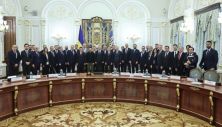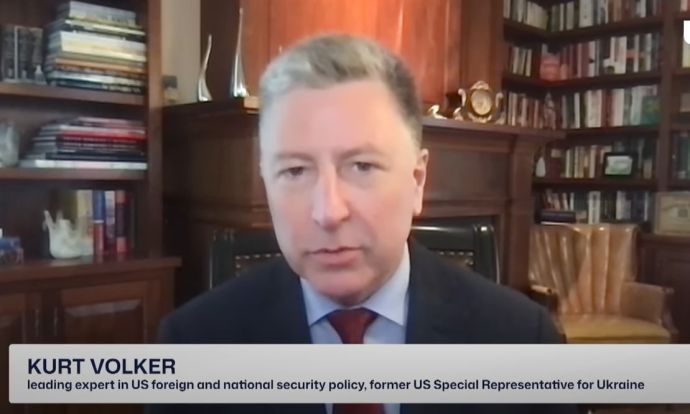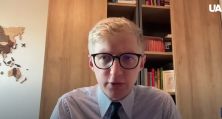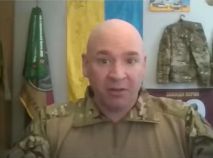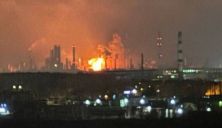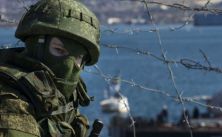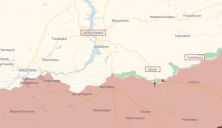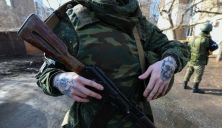Four points of the Ukrainian Victory Plan by Zelenskyy raise many questions. How the West will work with this plan?
This question and more were answered by Kurt Volker, an American diplomat who served as George W. Bush’s last U.S. Ambassador to NATO, former United States Special Representative for Ukraine Negotiations.
— Zelenskyy’s victory plan for Ukraine focuses on four key points. What is this points and why there are four of them?
— I only know what President Zelenskyy has said publicly, which isn’t much. He indicated that he wants to present this plan privately to President Biden, Vice President Harris, and former President Trump. I think we can anticipate a military component, an economic component, a political component, and, as he mentioned, something about future structures to secure peace. We can sort of anticipate what this might be.
My sense is that Zelenskyy has probably been getting some pushback from the U.S. about requests for long-range weapons and additional assistance, and they’ve likely asked, “What’s the plan? What are you going to use this for?” So now he’s put together a plan to answer that question.
That being said, I think the real answer is that the U.S. needs to provide much more substantial support for Ukraine, particularly long-range weapon systems, to change the battlefield. It’s about making the battlefield more sustainable for Ukraine and less sustainable for Russia.
— Well, at the beginning of this year, Republicans made a plan for Ukraine’s victory. So how many plans are there? Everyone seems to have one—China, Russia, and the West. So when and how is the West going to come up with a working plan? Is that even possible?
— You hit the nail on the head. It’s not so much the lack of a plan as it is the lack of will and resolve, especially from the U.S. and Germany.
We need to demonstrate that we have the capability and the will to use it as long as necessary and as effectively as possible.
This would show Putin that he cannot defeat Ukraine.
Right now, Putin believes he can outlast Ukraine and the West, which is why he keeps fighting.
— It feels like Putin is acting like he’s in charge of how the West should react. It’s like we’re still deciding what to do while he ignores all rules. Maybe more weapons for Ukraine are the answer?
— Weapons are definitely part of the answer. What we need now is to focus on defeating Russia first, then talk about peace.
Right now, people are talking about negotiating with Russia, but Russia isn’t ready to negotiate. That’s why we need to give Ukraine the resources and support to ensure Putin knows he will not succeed. Once that’s clear, then we can talk about a settlement.
— We know what must happen, but how can Ukraine get there? What should Ukraine do, or is it just a waiting game until the West wakes up?
— Ukraine is already doing a lot. The Kursk operation has shaken the narrative Putin was pushing. Ukraine is showing it’s worth supporting by innovating with drones and other tactics. But ultimately, it’s up to the West to realize that inaction is more dangerous than escalation.
The risks of not defeating Russia are far greater than the risks of supporting Ukraine fully.
— Do you think the West will allow Ukraine to use the weapons it already has?
— The dynamics in the U.S. are complicated. President Biden seems trapped by fear of escalation, and the White House doesn’t want to prioritize Ukraine as it could disrupt Kamala Harris’s election campaign. President Trump, on the other hand, says he would end the war in a day but hasn’t given specifics. It’s not clear what will happen, but the West needs to take decisive action.
— Looking at the Kursk operation, which wasn’t negotiated and surprised everyone, what if Ukraine used these weapons anyway, wiped out the enemy airbases, and just waited for the West’s reaction?
—The risk for Ukraine is that if it uses these weapons without permission, it could jeopardize future resupply from the U.S. and other countries. We’re in this together, and it’s important for Ukraine and the U.S. to stay on the same page.
— If you were the commander of Ukraine’s armed forces, would you have launched the Kursk operation?
— Absolutely. It was a crucial strategic move, even if it came with risks. It disrupted Putin’s narrative and changed the nature of potential settlement talks, shifting the focus away from Ukraine giving up territory. Now, it’s more of a trade-off. If I were in charge, I’d be looking for more opportunities like Kursk and focusing on disrupting supply lines to Crimea.
Read also: West risks snatching defeat from the jaws of victory. Interview with Cormac Smith
